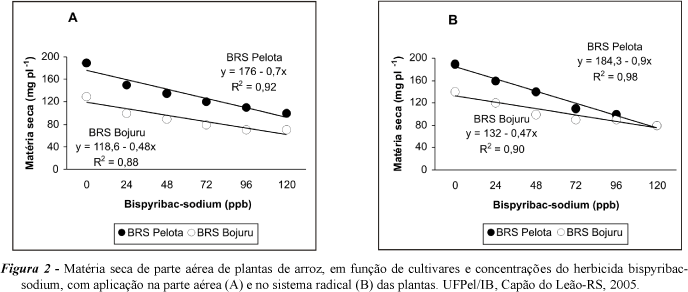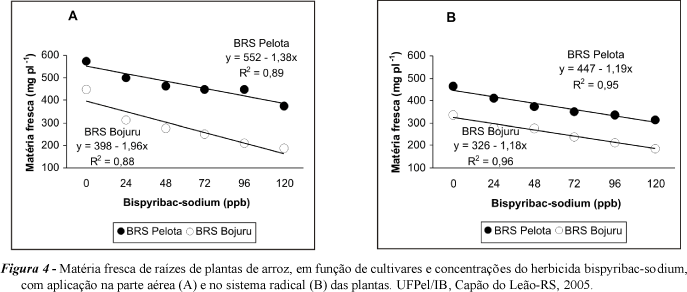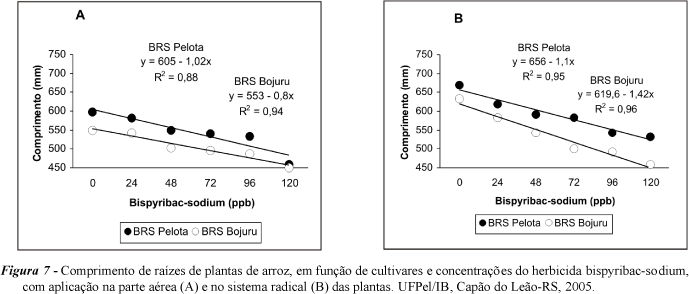The aim of this work was to evaluate the influence of bispyribac-sodium concentrations applied to shoot and roots of rice plants. The trial was conducted under controlled environment, using bispyribac-sodium at 0, 24, 48, 72, 96 and 120 ppb, applied to shoot or roots of rice plants cvs. BRS Pelota and BRS Bojuru. The experimental units were composed of plastic bottles with 500 mL capacity, drilled in the lateral next to the bottom, filled with washed sand, where five seeds were sowed, and the experimental units were put into a basin containing water at a lower level than the sand in the experimental units. The solutions were directly sprayed on the leaves, or mixed to the irrigation water when applied to the roots. Forty days after emergence, plant length and fresh and dry weight were evaluated in the shoots and roots, as well as root volume. The data were submitted to analysis of variance by the F-test and polynomial regression was drawn in case of significance. Cultivar BRS Bojuru was more sensitive to increasing rates of bispyribac-sodium than BRS Pelota, when applied to the leaves. Rates above the recommended should be avoided under field conditions, mainly when using japonica cultivars.
nominee; Oryza sativa; herbicide physiology







